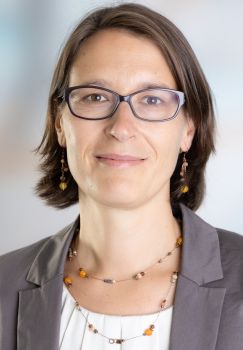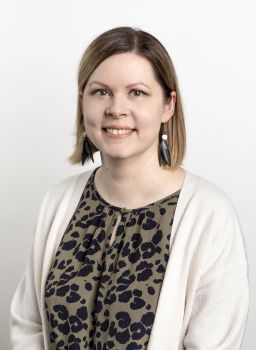
Prof Karoline Rogge

Dr Paula Kivimaa
The University of Sussex has two new academics recognised for the first time in the newly-published global list of highly cited researchers.
Paula Kivimaa and Karoline Rogge, both from the Science Policy Research Unit at the University of Sussex Business School, have been named in the 2021 Highly Cited Researchers List compiled by Clarivate Analytics.
In the past year, Dr Kivimaa has researched the impact of the Covid pandemic on energy use and travel, compared industrial policy in relation to energy use for different European countries and analysed how Scotland's progression to a low carbon future is being held back by national security policy from Westminster.
Prof Rogge's most recent research, conducted with Dr Kivimaa, has explored the interplay of policy experimentation and institutional change in sustainability transitions while her most cited paper, detailing the complexities involved in developing and delivering policy mixes in moving towards decarbonized energy systems, has been cited more than 370 times.
Their additions mean that the University has nine academics included in the global list - matching a record high for Sussex that was also achieved last year.
The list recognises researchers who have produced multiple highly cited papers in the last decade, with papers ranking in the top 1% by citations for a publication field and year.
Dr Kivimaa, Associate Faculty in the Science Policy Research Unit at the University of Sussex Business School, said: "I feel very honoured to be included in this distinguished list of highly cited scholars. I am glad that the work done together with many colleagues at the University of Sussex and elsewhere on sustainability transitions has received such interest and acknowledgement in the global academic community.
"This is truly the result of fruitful international and interdisciplinary collaborations, which have provided new insights for academic scholarship as well as policy development in an area which requires urgent global attention – how to achieve systemic changes towards zero-carbon societies."
Prof Rogge, Professor of Sustainability Innovation and Policy in the Science Policy Research Unit at the University of Sussex Business School, said: "Researchers around the world are investigating which policies best help in achieving climate and other environmental targets, and I am happy to hear my own research on policy mixes for environmental innovation and sustainability transitions – conducted with great collaborators – has been recognized in their work.
"After Glasgow what matters most is that transformational policy changes are implemented which are consistent with the Paris Agreement and new announcements at COP26, such as a rapid phase-out of fossil fuel subsidies, strong support for social innovation and just transitions, and enhanced coordination of multi-system interaction. I am convinced that policy mix research, particularly if bridging politics and policies, can provide orientation and guidance for this urgent task."
School of Life Sciences academic Dave Goulson has retained his position in the rankings from last year as has the University of Sussex Business School quartet of Constantin Blome, Adrian Smith, Steven Sorrell and Benjamin Sovacool.
Anil Seth, co-director of the Sackler Centre for Consciousness and member of the School of Engineering and Informatics, and Ian Scoones, from the Institute of Development Studies and the STEPS Centre at the University of Sussex, complete the university's representation in the global list.
Benjamin Sovacool, Professor of Energy Policy in the Science Policy Research Unit (SPRU), said: "I'm honoured to have been included on this list but I am even more pleased to be joined for the first time on the list by two hugely-talented colleagues in Dr Paula Kivimaa and Prof Karoline Rogge. They are extremely worthy additions to this elite international list of researchers and doubly so when you consider the well-known gender disparities that exist around academic citations."
Dave Goulson, Professor of Biology in the School of Life Sciences, said: "It is a great honour to receive this recognition of my work. It is wonderful to see such a high level of interest from around the globe in my research focussing on the decline of insects and how we can help them."
Steven Sorrell, Professor of Energy Policy in the Science Policy Research Unit, said: "I am honoured to be included on this list for the fourth year running, and I'm particularly pleased to be one of five researchers from the Sussex Energy Group on the list. This would not have been possible without the contributions of my colleagues and co-authors, with whom I would like to share this accolade."
Constantin Blome, Professor of Operations Management and Associate Dean for Research in the University of Sussex Business School, said: "I hope that the award motivates junior colleagues to pursue their research topics and trust their research instinct. An award like this can't be planned, but it's a great honour, although it still feels strange that people regularly cite your work."
Anil Seth, Professor of Cognitive and Computational Neuroscience in the School of Engineering and Informatics, said: "I'm delighted to be included on this list. It feels gratifying to know that our work is making a difference - and I say 'our' because this recognition is truly a team effort and testament to the prodigiously talented colleagues and students that I am so fortunate to work with."






